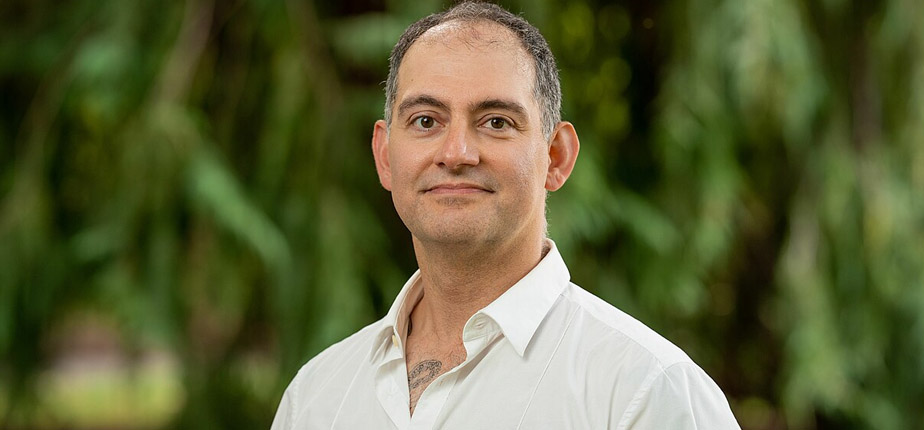
The WISH Summit Interview with Dr. Michael Fakhri: The Right to Food and Starvation as a War Crime
At the WISH Summit, Ahmed J Versi, Editor of The Muslim News, conducted an interview with Dr Michael Fakhri, UN Special Rapporteur on the Right to Food, focusing on the legal implications of food sovereignty, the systemic challenges of hunger, and the classification of starvation as a war crime, with Dr Fakhri reaffirming the right to food as a non-negotiable human right rather than a charitable provision.
The Right to Food: A Human Right, Not Charity
Dr Fakhri explained the right to food in broad terms, describing it as the right to access good, nutritious, healthy, and culturally appropriate food. “Everyone has the right to access food, but also to decide as a community what good food means,” he said. He made it clear that food should not be seen as a commodity dictated by market forces or corporate interests, but rather as a basic obligation for governments to ensure that all individuals have access to it, either through affordable markets or local production such as farming, fishing, or hunting. Food sovereignty, a related concept, pushes for the return of power to local communities in food production.
“Corporations dominate our food systems today,” Dr Fakhri said. “They produce food that is unhealthy and damaging to the environment.” He emphasized that small-scale producers and communities should have the autonomy to define their own food systems, without the undue influence of multinational corporations pushing for profit-driven agendas that ignore local needs.
Food Sovereignty vs National Sovereignty
When discussing food sovereignty, Dr Fakhri distinguished it from the concept of national sovereignty. “Food sovereignty is always about putting power in the hands of people,” he explained. He clarified that countries often misuse the term “sovereignty” to claim power within artificial political boundaries, many of which were established by colonial powers and don’t reflect the realities on the ground. “Food sovereignty crosses boundaries,” Dr Fakhri pointed out, “because it’s about empowering people, regardless of where they live or the political system under which they exist.”
Multinational Corporations and Cash Crops
Dr Fakhri highlighted the pressure that multinational corporations place on developing countries to grow cash crops instead of food for local consumption. These corporations often exert more power than smaller nations, encouraging the prioritization of cash crops like corn, soy, and wheat, which are driven by profit rather than the nutritional needs of the people. “When you’re driven by profit, you don’t focus on fruits and vegetables or local foods,” he stated. “It’s not about maximizing profits at any cost—it’s about feeding people locally while still being able to engage in international trade.”
Starvation as a War Crime
A pivotal moment in the interview focused on Dr Fakhri’s strong stance on starvation as a war crime. Reflecting on recent events in Gaza, he emphasized that the use of starvation as a weapon is not just an unfortunate byproduct of war, but a direct violation of international law. “Starvation is a war crime,” he declared. In his recent report to the UN General Assembly, Dr Fakhri highlighted how systemic policies and laws allow entities like Israel to starve Palestinians, not as a temporary consequence of conflict, but as a deliberate strategy. He stressed that international law must treat starvation not just as a war crime, but as a violation of international law itself, an act that transcends individual accountability and points to structural injustice.
“In Gaza, we’re seeing the fastest case of starvation in modern history,” Dr Fakhri said. He described the overwhelming impact on the civilian population, noting that even if violence stopped immediately, the consequences of malnutrition and famine would continue for months. According to the latest reports from independent famine experts, Gaza is facing an unprecedented humanitarian crisis.
Global Implications: Regions Affected by Starvation
While Gaza is currently facing a particularly severe case of starvation, Dr Fakhri was careful not to compare it directly with other regions in crisis. He pointed out that Sudan, Yemen, the Democratic Republic of Congo, and Haiti are also grappling with severe hunger crises. In Sudan, he noted, both sides of the ongoing conflict are using starvation as a weapon. “Sudan is the largest case of starvation in modern history,” he said. “But the fact is, starvation is being used more and more as a weapon of war across the globe.”
Dr Fakhri’s work calls for a broader understanding of food security—not just as a response to conflict, but as an ongoing human rights issue that demands attention in both peacetime and during war. As he explained, “Food sovereignty is not just an issue in conflict zones, it’s a global issue, one that requires international recognition and a deeper commitment to human rights.”
A Call for Action
The interview ended with Dr Fakhri urging the international community to treat food security and starvation as fundamental human rights issues. “We must move beyond treating hunger as a side effect of conflict,” he concluded. “Starvation is a war crime, and the right to food is a fundamental human right that governments must uphold, both in times of war and peace.” Through his work, Dr Fakhri continues to advocate for a world where food is not a commodity controlled by powerful elites but a basic human right accessible to all.
Photo: Dr Michael Fakhri, UN Special Rapporteur on the Right to Food (Credit: University of Oregon/WikiCommons)
Ahmed J Versi,
Editor of The Muslim News
READ MORE
| QATAR WISH SUMMIT |
| Escalating attacks on healthcare in conflict zones |